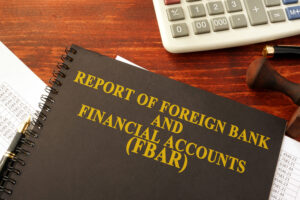What Should You Do if You Can’t Afford to Pay Back-Taxes?
Paying taxes is no fun. Owing back taxes and not being able to pay them is much worse. Many people get into tax trouble when they end up owing money to the IRS and they don’t have the means to pay it off. This can cause a lot of stress, anxiety and even fear or panic. However, you shouldn’t panic. The IRS won’t show up at your door with the police ready to take you away in handcuffs.
If you do end up owing back taxes and you can’t pay them off all at once, you have some options. That’s because the IRS is willing to work with you, so long as you are willing to work with them. The first thing you should do, is file your return on time, even if you know you don’t have the money to pay off your tax debt. This will help you avoid additional late-filing penalties.
Pay as much as you possibly can when you file your return. If you just need a little more time then you can file for a short-term extension in order to pay off the remaining debt within 120 days. If it is going to take longer, then apply for a monthly payment plan with the IRS. It’s best to set up an automatic monthly payment plan. There will likely still be interest and some penalties but they will be much lighter.
The IRS wants you to be able to pay your taxes and they are willing to work with you if you keep up your end of the agreement. You can learn more about paying off back taxes by clicking here.
Gift Tax: Tips from the IRS
Gift Tax: Tips from the IRS Taxpayers who have given gifts exceeding $11,000 in value to a single individual must report the total gift amount to the Internal Revenue Service (IRS). The giver may owe taxes on the gifts. The recipient, however, does not have to report or pay taxes on the value of the…
Secondary Market May Impact 409A Valuations
Secondary Market May Impact 409A Valuations An issue gaining attention with respect to 409A valuations is the fact that many private company shares are increasingly being traded in the secondary market. There is a debate among valuation specialists over how transactions in private company stock impact the value of the company securities for 409A purposes.…
Five Tips for Recently Married or Divorced Taxpayers with a Name Change
Here are five tips for recently married or divorced taxpayers with a name change. If you changed your name after a recent marriage or divorce, the IRS reminds you to take the necessary steps to ensure the name on your tax return matches the name registered with the Social Security Administration. A mismatch between the…
You Thought FBAR (Foreign Bank Account Report – Form TD F 90-22.1) Was Bad?
You Thought FBAR (Foreign Bank Account Report – Form TD F 90-22.1) Was Bad? By Ron Cohen, CPA, MST Partner Greenstein, Rogoff, Olsen & Co., LLP PLEASE See: http://www.calcpa.org/Content/26096.aspx We are happy to help you meet these old & new disclosure requirements. Non-reporting subjects a taxpayer to horrendous penalties, even if no tax is due.…




